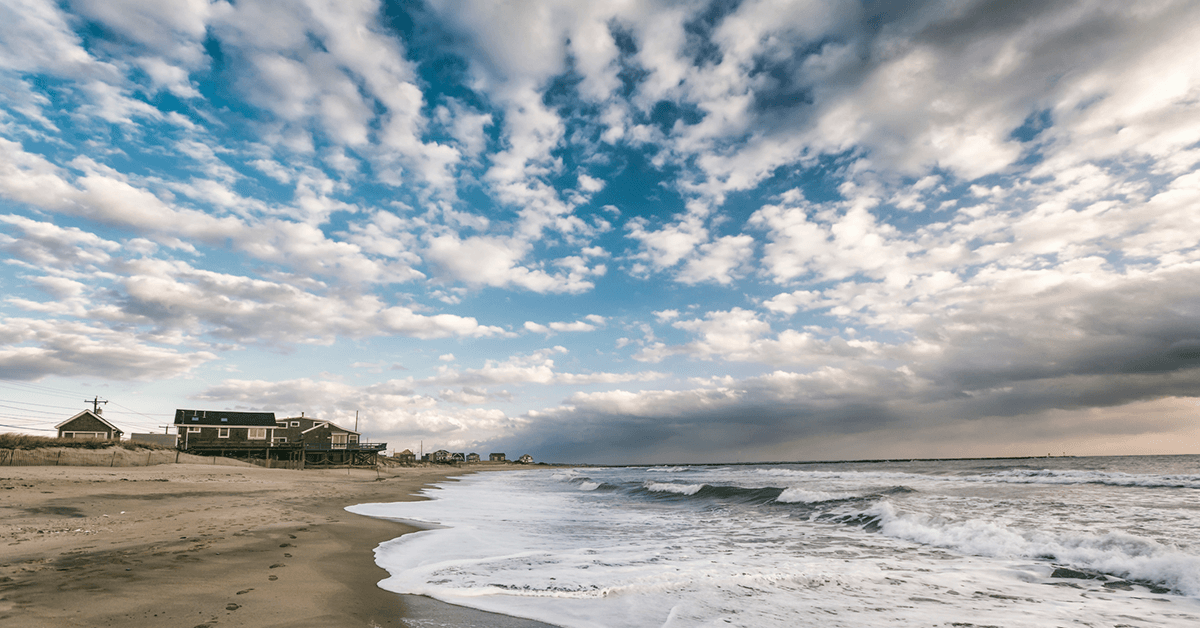
Homeowners Along Rhode Island’s Shoreline Worry that New Legislation Will Diminish Their Already Shrinking Private Property
Shoreline rights in Rhode Island have been debated for nearly as long as the state has been a part of the union. Rhode Island’s constitution, written in 1843, granted the public the right to access the state’s 400 miles of shoreline.
Then, Rhode Island’s Constitutional Convention in 1986 resulted in the current Public Trust language. The definition was influenced by the state’s 1982 Supreme Court ruling that “said beachgoers are required to stay on the ocean side of the mean high tide line, as determined over a nearly two-decade period.”
However, shifting sands have led to a shifting tide line which has led to an abundance of confusion and ambiguity for casual beach walkers who are unable to determine the mean tide line with the naked eye. While there have been attempts to firm up the location of public access, none have been very successful, and the result has been legal conflict between property owners and beachgoers.
Recent legislation is taking a different route to solve this persistent problem. Proposed House Bill 5469 “Prevents a person from being prosecuted for fishing, gathering seaweed, swimming or passage along the sandy or rocky shoreline within 10 feet of the most recent high tide line.”
This change was triggered in part by the arrest of Charlestown resident Scott Keeley in 2020. Private property owners in South Kingstown contacted local police when they noticed Keeley collecting seaweed along the shoreline in front of their home. While the charges were eventually dismissed the incident brought to light an issue that has been simmering under the surface for some time.
Supporters of this new legislation hope it will eliminate incidents like Keeley’s along Rhode Island’s shoreline.
“Our legislation doesn’t attempt to interpret the constitution or define where private property ends and public property begins; it only says someone can’t be criminally prosecuted for attempting to exercise their constitutional shoreline rights within a defined area of the shore. Our goal is to provide a more practical definition of where these activities can take place, and to get the criminal law out of these disputes, which will go a long way resolve much of the conflict that has only increased in recent years,” said House Minority Leader Blake A. Filippi (R-Dist. 36, New Shoreham, Charlestown, South Kingstown, Westerly).
While coastal homeowners would no longer be able to press criminal charges for trespassing beyond the high tide line, they would still have the right to sue trespassers in civil court. And attorneys representing the private property owners argue that the bill would be equivalent to taking private property and placing it in the public domain without compensation.
William Landry, an attorney for the private landowners, said that the assessed value of that property throughout Rhode Island, “would easily be in the hundreds of millions of dollars.” Homeowners along the coast are already losing their property to erosion. According to The Rhode Island Coastal Property Guide, “the most eroded portions of the state’s coastline have lost over 250 feet of beach in just 50 years.”
But others argue that restricting public access to Rhode Island’s beaches may cost the state money in lost tourism opportunities. “Tourism is our state’s biggest industry,” James Bedell, a member of a shoreline access advocacy group said. “People come here for our beaches and they stay for our businesses. Acknowledging shoreline access would make Rhode Island even more desirable for tourism.”
For property owners along the shoreline who want to keep their homes clear of public beachgoers, there is little that can be done aside from posting “no trespassing” signs or hiring private security to move loiters along.
This new legislation will likely slow the onslaught of criminal trespassing charges associated with shoreline rights. but the true issue of what constitutes private property remains unresolved.
Time to Focus on Affordable Housing
Taxes on real estate are not the answer. Sign the petition calling on Congress to address our country’s housing shortage.





